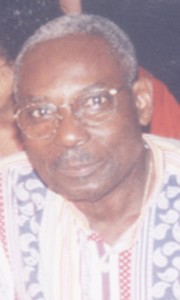The joint parliamentary opposition has expressed disappointment with the failure of their petition on a number of political, social and economic problems to get the attention of the Caricom Heads of Government at the just-concluded summit in Antigua and Barbuda.
 They feel that Caricom needs to be more accessible to its citizens and should not only serve the region’s governments.
They feel that Caricom needs to be more accessible to its citizens and should not only serve the region’s governments.
PNCR General Secretary Oscar Clarke, AFC Leader Raphael Trotman and GAP-ROAR MP Everall Franklin all said that they have to rethink the strategy in approaching Caricom based on the changing political, economic and social landscape, more so with the ever increasing cost of living and events surrounding the recent Lindo Creek massacre.
Expressing disappointment at the “procedural constraints” which prevented the petition from moving forward, Trotman told Stabroek News that the combined opposition would have to meet to rethink its strategy in dealing with issues and current ones that are still affecting the Guyanese society.
Contending that the Caricom Heads of Government have no right to deny hearing citizens with legitimate concerns in their respective countries, he said that the denial flies in the face of what the founding fathers of Caricom would have envisaged for the region.
He said that the lack of acknowledgement of the petition by the Caricom Secretariat brings into focus Caribbean writer, George Lamming’s view that Caricom is an elite grouping and the secretariat is only to serve the heads of government and not to facilitate a link between the heads of government and the people of the region. “Something has to be done to change that reality,” he said.
Critical of the procedure which citizens need to follow to have a concern raised at the level of the heads of government meeting, Franklin said that there needs to be procedures to facilitate civil society to access the heads.
“Which head would have the guts to raise the issues similar to which they themselves might have to answer,” he asked rhetorically. He felt they probably needed to strategise more effectively, which included soliciting the help of Guyanese in Antigua who know best why they would have left Guyana in the first place to find improved living conditions there.
“We’d have to rethink the strategy,” he said adding that “lots of things have happened since the petition – government’s treatment of the Lindo creek murders, issues of increasing cost of fuel and the cost of living, which make some of the issues we raised in the petition, pale into insignificance.”
Clarke, who travelled to Antigua to deliver the petition, told Stabroek News that he was disappointed in the manner in which the Caricom Secretariat has treated the joint opposition since it first tried communicating with the Secretariat in April, 2008 during which they were informed of the suspension of CNS television for four months and of their intention to send a petition to the heads of government.
The petition, he said he presented to the Chairman of Caricom, Prime Minister of Antigua Baldwin Spencer on July 1, 2008. He also gave a copy of it to the Secretary General Edwin Carrington and there has been no response to date.
In the letter dated April 15, 2008, Clarke said that the joint opposition related to then Chairman of Caricom Hubert Ingraham their concerns and outlined their intention to send a petition to the body. The letter was copied to the Caricom Secretary General.
They had no response from the Caricom Secretariat acknowledging receipt of the letter.
Even after the petition was delivered, Clarke said that he was unaware of the procedure one has to follow to get his or her voice heard at the level of the heads of government. He felt that once it was delivered to the Caricom Secretariat or to the Chairman of Caricom “that was it.”
At the reception and on the fringes of the meeting he said that he met and spoke with representatives of a number of delegations including the Assistant Secretary General Albert Ramdin and Commonwealth Secretary General, Kamlesh Sharma.
“Nothing is wrong with that,” he said, noting that he saw President Bharrat Jagdeo who jokingly told him “your petition is dead in the water. Why didn’t you ask me to help you?”
The petition which had over 8,000 signatures highlighted a number of issues including the cost-of-living, attacks on the right to Freedom of Expression as in the case of the four-month suspension of CNS Channel 6 licence; the harassment of citizens and violation of their human rights; the incarceration of former army officer Oliver Hinckson on a sedition charge and the refusal to grant him bail; the refusal to enact freedom of information legislation; the improper extension of the term of the commissioners of the Ethnic Relations Commission (ERC) and the alleged use of torture by the security forces.






